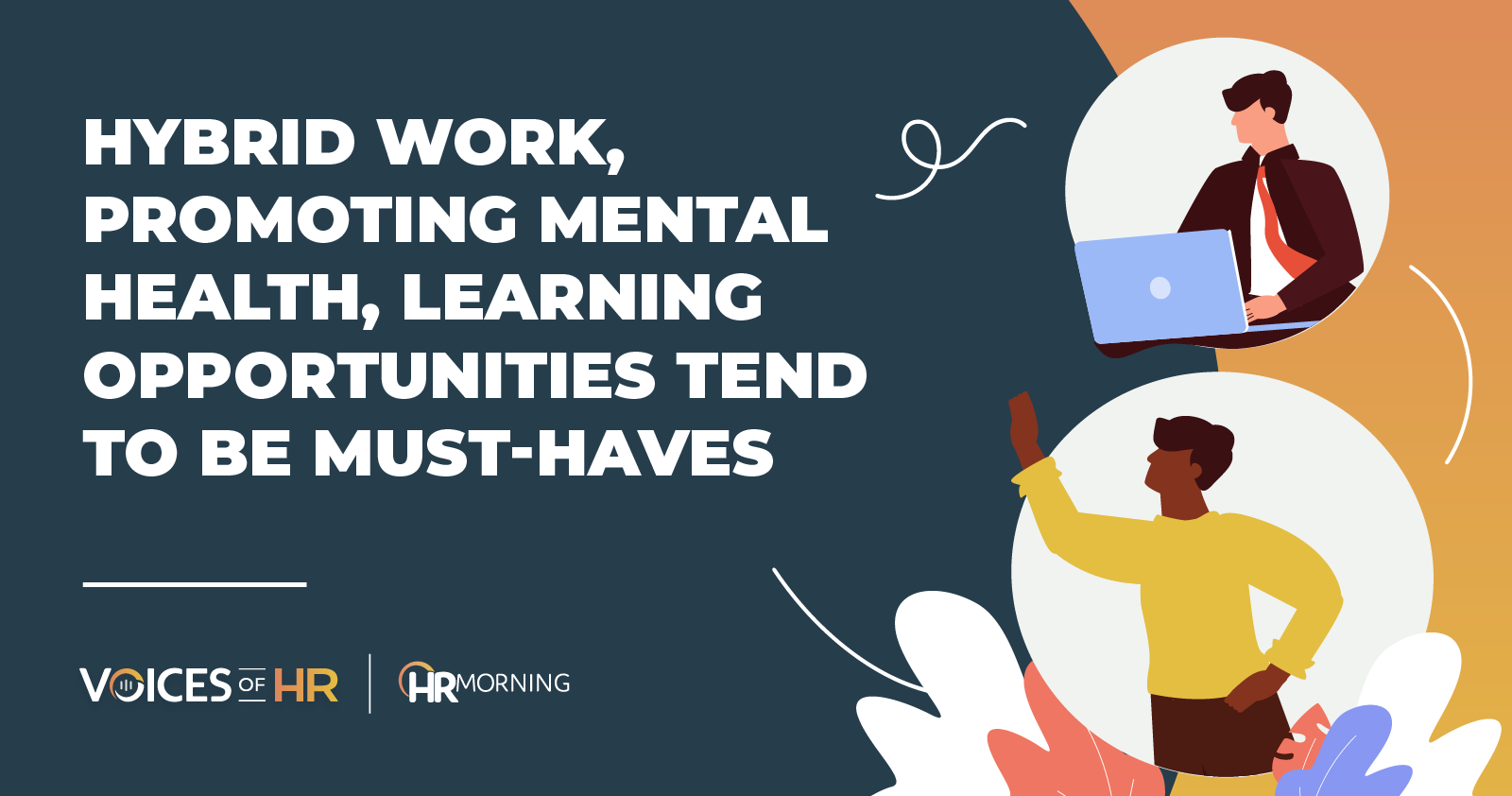The World Economic Forum estimates that by 2025 – two short years away – more than 25% of the workforce will be comprised of Gen Z individuals.
These resourceful digital natives, born around the turn of the millennium, are graduating college and coming to work with unique perspectives and expectations about work, life and wellbeing that are starting to reshape the workplace.
That’s according to Radina Walsh, a psychologist, remote talent advisor and founder of Vox Advisory.
In an episode of the HRMorning podcast Voices of HR, titled “What You Need to Know About Recruiting the Newest Generation of Top Talent,” she admitted that in many of her interactions with Gen Z workers, she ends up learning more from them than they do from her.
“Within eight months, I have seen people really thriving in their roles,” she said.
Walsh noted that it’s important to remember that for this generation Google has always existed. And because they grew up with even easier access to technology than the Millennials had, Gen Z is able to quickly grasp complex concepts and find solutions, making them valuable assets to organizations.
But to attract and retain them, employers need to understand Gen Z’s preferences and adapt accordingly.
Gen Z’s expectations from employers
Gen Z tends to demand transparency, open communication and inclusivity, according to Walsh. Companies with cultures not equipped to embrace these values will have a difficult time getting them to stay more than 10 months, she said.
“(Gen Zers) are quite interested in having several different vocations … influencer … yoga instructor … coding expert. … Work is not a place. Work is not even a company anymore. We need to get used to the fact that they just see work in a different way,” she said.
“Gen Z seems to be educating all of us. They’re starting to figure out that it’s not just about going to work for 80 hours a week and constantly taking on more responsibility,” commented Voices of HR host Berta Aldrich.
As a result, hybrid work models are important to Gen Z because of the ability to flex the convenience of remote work or the benefits of in-person interactions for socializing and building relationships.
In addition, Walsh said, Gen Z values learning opportunities, such as skilling and upskilling.
And with a worldview heavily influenced by 9/11, social media, a global pandemic and the rise of AI, Gen Z tends to struggle with mental health more so than their co-workers from other generations. Walsh said that employers need to address these concerns by offering resources, encouraging open conversations and promoting mental wellbeing in the workplace.
Some of your supervisors may need to adjust their management styles, or get some training, because Gen Z prefers managers who establish an understanding, human connection and offer guidance while providing flexibility in work arrangements.
Ultimately, this generation wants to be their authentic selves at work, she said.


